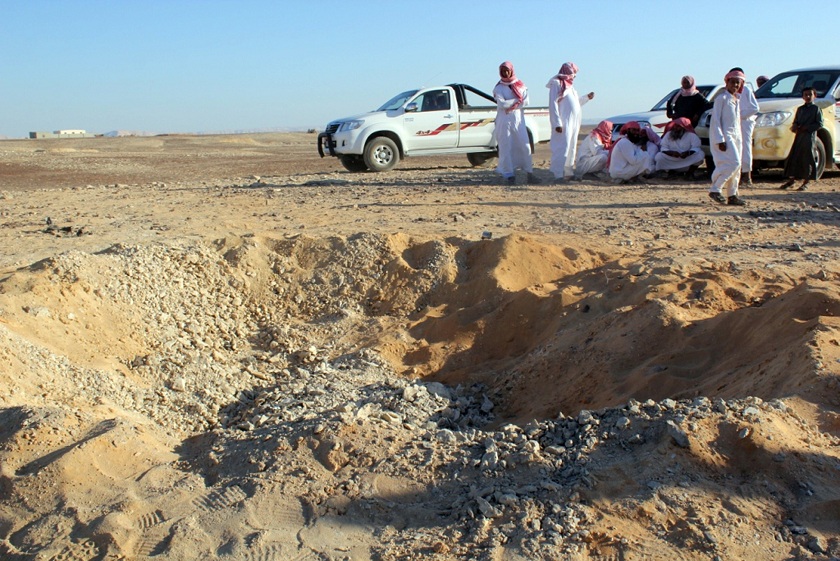PONTIANAK, Indonesia: In recent months, religious tolerance in Indonesia has been marred by rising instances of violence. Certain Muslim extremist groups have launched attacks against minority sects and the local Christian community — including forcibly closing churches and damaging religious buildings.
In response, Indonesian President Susilo Bambang Yudhoyono has stressed the need for religious tolerance by calling on Indonesians to exercise the "true philosophy of harmonious living in a pluralistic society" amid growing calls for him to take severe legal action against extremists who attack religious or ethnic minorities in the country.
Traditionally, Indonesia has been a nation of relative religious calm, peace and tolerance — goals of the country’s original founders. For the most part, they were successful in achieving these goals: despite the ethnic and religious diversity in Indonesia, there has been little in the way of religious violence or politicking.
In fact, instances of peaceful intergroup coexistence, such as the relationship between Christian Dayaks, Muslims and the minority Chinese population in Sanggau, can serve as positive examples for people in other parts of Indonesia.
Sanggau is a remote town in the eastern part of Indonesia’s West Kalimantan province. It is where the local political party, the Dayak Party, was founded during the era of Soekarno, the first Indonesian president. This party once succeeded in unifying the Dayak, a major ethnic group on Kalimantan Island, also known as Borneo.
The majority of Sanggau’s population is comprised of Christian Dayaks, and includes Catholics and Protestants. Muslims are a minority and live mostly in urban areas. Sanggau is even more diverse when it comes to its ethnic composition. The Dayak ethnic group constitutes the majority, while Malay and other ethnic groups constitute significant minorities. In addition to these ethnic groups, there are also Tionghoa/Chinese, Minang/Padangese, Buginese, Javanese, Maduranese, Sundanese and other minority ethnic groups. In the midst of this diversity people coexist peacefully and live in harmony.
In Sanggau, the Chinese — who identify themselves primarily as Catholics, Protestants or Confucians — are dominant in the economy. Many of them own shops in Sanggau’s market, and in the market complex they built the Tri Dharma Temple, a Confucian temple run by the Halcyon Foundation of Sanggau. It is a majestic temple with two sculptures of guardians wearing battle attire, symbolically offering protection to the temple from threats.
What is unique in its surroundings is that there is a mosque right beside the temple – yet their worshippers do not clash.
According to Ahon, a 60-year-old Chinese trader in the market, the temple had existed for a long time before the mosque was built in the 1970s. “Here we have never disturbed each other, even though people might consider it awkward to see a mosque near a Chinese temple,” he said.
No violence has ever taken place between the two groups. In fact, even during Ramadan — the month of fasting for Muslims — many Chinese restaurants and cafés remain open near the mosque without facing any of the vigilante violence that has been seen in other parts of Indonesia against establishments that do not close during the fasting period. There is even a restaurant selling pork only 20 meters from the mosque.
What we see in the market of the small remote town of Sanggau is a positive example of the religious tolerance characterized by the founding spirit of Indonesia.
Although most inhabitants of Sanggau are probably not aware of US President Barack Obama’s speech in Egypt aimed at healing American rifts with the Muslim world, what they are practicing in their small neighborhood in Sanggau is reflective of what Obama stated: “So long as our relationship is defined by our differences, we will empower those who sow hatred rather than peace, and who promote conflict rather than the cooperation that can help all of our people achieve justice and prosperity.”
People in Sanggau realize that peaceful coexistence is much better than conflict. May peace in this town not be destroyed by those who fail to see its value.
Tony Kusmiran is a journalist with the monthly magazine Kalimantan Review, and is currently developing a community-based media program in Sanggau. This article was written for the Common Ground News Service (CGNews), www.commongroundnews.org.


